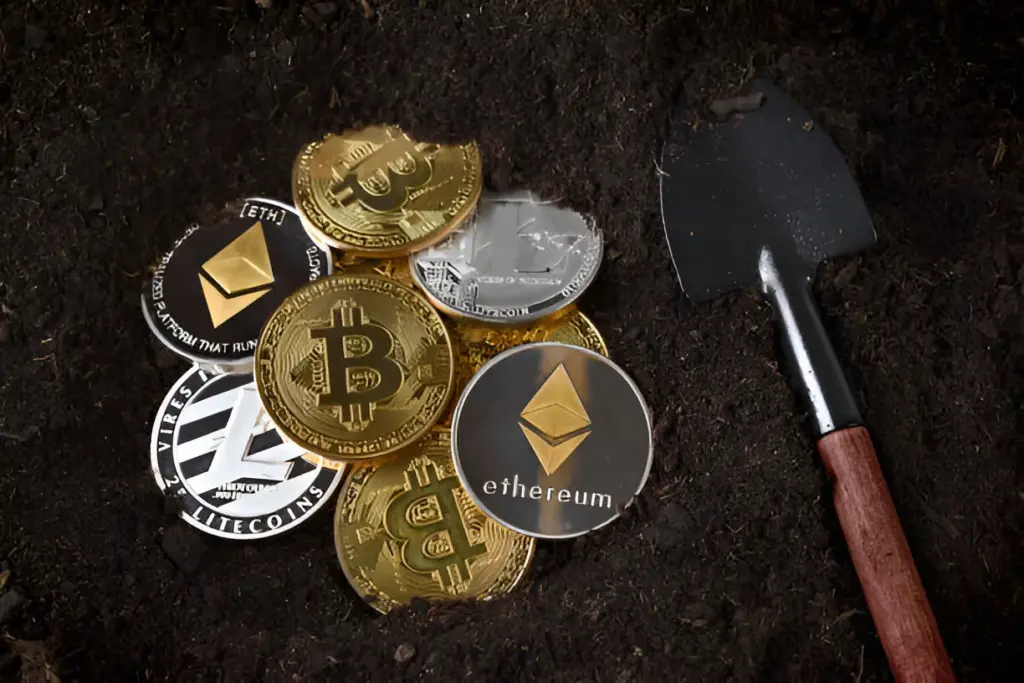The Fidelity Ethereum ETF is one of the most talked-about developments in cryptocurrency investing today. If you’re interested in Ethereum but aren’t quite ready to buy and manage actual ETH coins, this exchange-traded fund may offer a compelling alternative.
In this article, we’ll walk through what the Fidelity Ethereum ETF is, why it matters, and what it means for the broader financial and crypto landscapes. Whether you’re a seasoned investor or someone just exploring this space, this guide will break it all down clearly and concisely.
What Is an ETF?
Let’s start with the basics.
ETF stands for Exchange-Traded Fund. At its core, an ETF is a type of investment vehicle that holds a collection of assets such as stocks, commodities, or cryptocurrencies and trades on a stock exchange, just like a regular stock.
In this case, the Fidelity Ethereum ETF is designed to track the performance of Ethereum, the world’s second-largest cryptocurrency by market capitalization. Instead of purchasing Ethereum directly, investors can buy shares in this ETF, which represent a portion of the underlying ETH held by Fidelity.
This allows exposure to Ethereum’s price movements without the need to own or manage digital wallets, handle private keys, or deal with gas fees.
Who Is Fidelity and Why Does This Matter?
Fidelity Investments is one of the largest and most reputable financial services companies in the world. Founded in 1946, it manages trillions of dollars in assets and serves millions of individual and institutional investors globally.
When a firm of this magnitude proposes a cryptocurrency ETF especially one tied to Ethereum it signals a major shift in how mainstream finance views digital assets. Fidelity’s involvement lends credibility to Ethereum as an asset class and makes cryptocurrency investing accessible to a broader range of investors.
For many, hearing “Fidelity Ethereum ETF” brings a sense of trust and legitimacy that’s often missing in the fast-moving, sometimes volatile world of crypto.
Why Is the Fidelity Ethereum ETF a Big Deal?
While Bitcoin ETFs already exist and have paved the way for institutional crypto exposure, Ethereum ETFs especially spot-based ones are still emerging. Fidelity’s entry into this space is important for several reasons:
-
It comes from a trusted financial institution
-
It offers a simple way to invest in Ethereum
-
It eliminates the need for technical know-how or digital wallet management
-
It reduces the risk of hacks or lost assets
For everyday investors, the Fidelity Ethereum ETF offers a streamlined method to participate in Ethereum’s growth without diving into the complexities of crypto technology.
How Does the Fidelity Ethereum ETF Work?
Here’s a simplified breakdown:
-
Fidelity acquires and securely stores actual Ethereum.
-
It creates an ETF whose shares reflect the value of the Ethereum it holds.
-
Investors buy and sell these shares on the stock market.
-
As Ethereum’s market price changes, the value of the ETF shares moves accordingly.
There’s no need for wallets, no password recovery issues, and no decentralized exchanges to navigate. You can buy or sell ETF shares through a regular brokerage account, making this an accessible option for retail investors.
How Is This Different From Buying Ethereum Directly?
Here’s a quick comparison:
| Feature | Buying Ethereum Directly | Fidelity Ethereum ETF |
|---|---|---|
| Requires crypto wallet | Yes | No |
| Subject to gas fees | Yes | No |
| You control the ETH | Yes | No, Fidelity holds it |
| Eligible for staking rewards | Yes | Possibly, depending on ETF terms |
| Risk level for beginners | Higher | Lower |
| Regulated | Less so | Fully regulated financial product |
For tech-savvy users who want full control of their assets and participate in DeFi or NFT ecosystems, owning ETH directly may still be preferable. But for those seeking convenience and lower technical barriers, the ETF is a more practical choice.
Who Can Invest in the Fidelity Ethereum ETF?
Once approved, the Fidelity Ethereum ETF will be available to nearly anyone with a standard brokerage account. You won’t need to:
-
Open a digital wallet
-
Learn about private keys
-
Monitor blockchain transactions
Instead, you can purchase ETF shares the same way you’d buy shares of Apple, Tesla, or the S&P 500.
This is especially important for financial advisors, retirees, or institutional investors who may not be comfortable with unregulated crypto exchanges but want Ethereum exposure in portfolios.
When Will the Fidelity Ethereum ETF Be Available?
Fidelity has filed the necessary paperwork with the U.S. Securities and Exchange Commission (SEC), which must approve the ETF before it can be launched.
As of now, we’re in the waiting period. The SEC has been reviewing several Ethereum ETF proposals, and industry experts expect a decision sometime this year. Once approved, trading could begin shortly afterward.
Keep an eye on financial news outlets this will be a headline event when it goes live.
Why Investors Are Paying Close Attention
The potential impact of this ETF is significant. Here’s why investors are watching it closely:
-
It could bring more institutional capital into Ethereum
-
It provides an entry point for risk-averse investors
-
It could help stabilize and strengthen Ethereum’s long-term value
-
It adds legitimacy to the broader crypto ecosystem
Increased demand for ETF shares often leads to higher demand for the underlying asset. If large numbers of investors enter the market through Fidelity’s fund, it could put upward pressure on Ethereum’s price.
What Are the Risks?
While the Fidelity Ethereum ETF simplifies many aspects of crypto investing, it’s important to acknowledge the risks:
-
Ethereum’s price remains highly volatile and subject to market swings
-
Investors don’t own actual ETH, meaning they can’t use it in decentralized applications or for staking (unless the ETF includes staking mechanisms)
-
ETF management fees can eat into long-term returns
-
Regulatory changes could impact the ETF or the crypto market more broadly
In short, the ETF reduces some of the technical risks, but not the financial ones. Always do your due diligence and consider your risk tolerance before investing.
What Happens If Ethereum’s Price Surges?
If Ethereum climbs to new highs say $10,000 or beyond the ETF shares should rise accordingly. Since the ETF reflects the market value of Ethereum held by Fidelity, a price increase in ETH directly benefits ETF shareholders.
This is why many investors view the ETF as a strategic way to capture future growth, especially if they believe Ethereum will gain more adoption in areas like decentralized finance, NFTs, or enterprise applications.
How Can You Prepare?
If you’re interested in investing when the Fidelity Ethereum ETF becomes available, here’s what you can do now:
-
Make sure you have a brokerage account that supports ETF trading
-
Monitor announcements from Fidelity and the SEC
-
Set aside funds if you plan to invest early
-
Stay informed about Ethereum and crypto market trends
You don’t need to be a crypto expert, but having a basic understanding of what Ethereum is and how it works will help you make better investment decisions.
Are There Other Ethereum ETFs?
Yes, but with important distinctions. Current offerings in the U.S. are futures-based Ethereum ETFs. These track Ethereum futures contracts, not the actual price of Ethereum.
Futures-based ETFs can behave unpredictably and are generally better suited for advanced traders. In contrast, the Fidelity Ethereum ETF is expected to be a spot ETF, backed by real Ethereum. This structure is more transparent and often more favorable for long-term investors.
Why Ethereum Is Worth Watching
Ethereum is more than just a digital currency. It’s a platform that enables decentralized applications (dApps), smart contracts, and innovations in Web3, gaming, and finance.
Unlike Bitcoin, which is mainly used for transferring value, Ethereum is programmable making it the foundation of the decentralized internet.
By offering a Fidelity Ethereum ETF, investors can now gain exposure to this revolutionary technology without needing to dive into the deep technical weeds.
Could Fidelity Launch More Crypto ETFs?
Very likely.
Fidelity already offers Bitcoin-related products, and now Ethereum is on the table. If the Ethereum ETF proves successful, it wouldn’t be surprising to see other crypto assets such as Solana, Cardano, or Polygon follow.
Fidelity is positioning itself as a leader in the digital asset space, and expanding ETF offerings would be a logical next step.
Final Thoughts:
If you’re looking for:
- A simplified way to invest in Ethereum
- A regulated financial product backed by a trusted institution
- Exposure to crypto without technical complexity
Then the Fidelity Ethereum ETF could be an excellent choice.
It’s not without risk, and it’s not a substitute for owning Ethereum directly if you want to use it for decentralized applications. But as a mainstream investment vehicle, it provides access to one of the most important blockchain platforms in a secure, familiar format.
As always, weigh your options carefully and consult with a financial advisor if you’re unsure. But one thing is clear: the Fidelity Ethereum ETF represents a major step forward for crypto adoption and it may be just the beginning.









